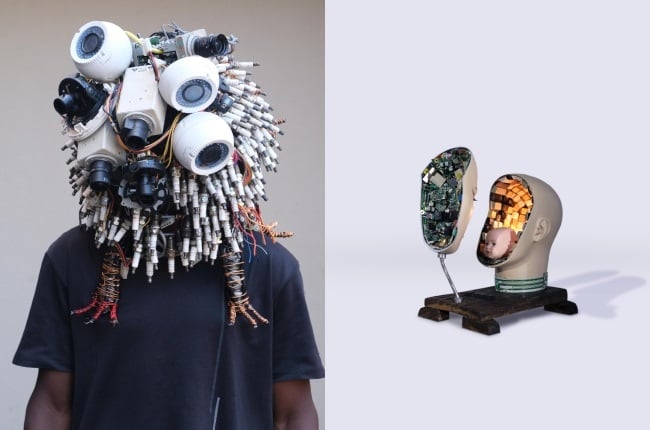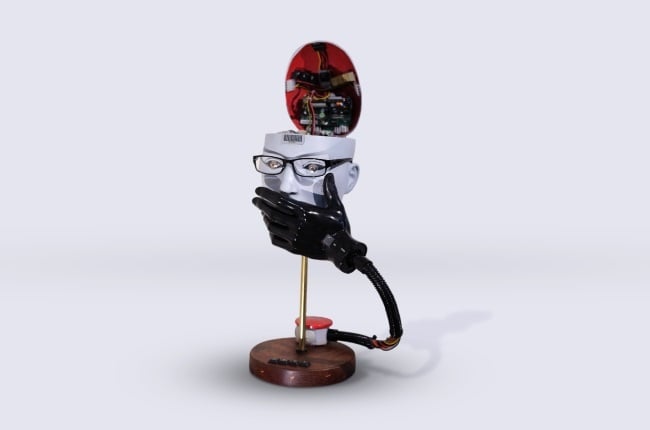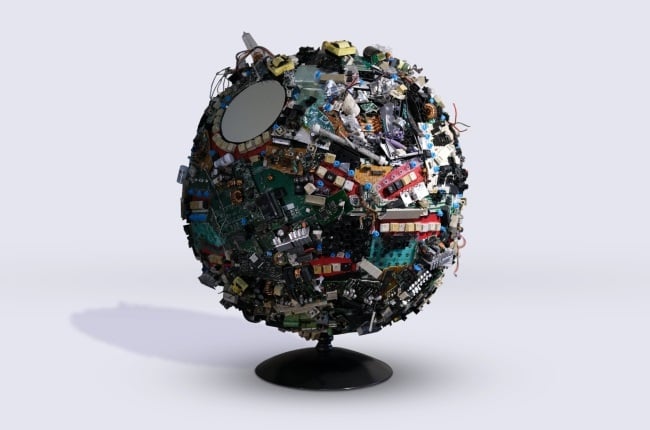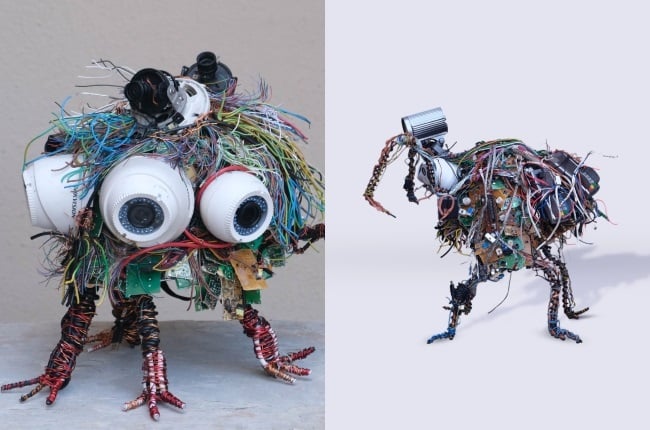
As we hurtle towards an increasingly digital future with an ever-evolving array of smart gadgets, the Earth is being poisoned by toxic chemicals released by electronic waste that's been dumped in landfills.
Electronic waste is the fastest-growing stream of waste in South Africa, according to the non-profit Waste Association of South Africa.
When electronic waste, or e-waste, is exposed to heat it releases toxic chemicals into the air damaging the atmosphere. Those toxic materials can also seep into the groundwater, affecting both land and sea animals.
The toxic components of e-waste include substances which are deadly to humans and animals, including mercury, lead, cadmium, polybrominated flame retardants, barium and lithium, which can cause damage to the brain, heart, liver, kidney and skeletal system.
Despite this, only 14% of mainstream e-waste is recycled in SA — the lowest rate of any type of waste in the country, according to the South African Institution of Civil Engineering, and hazardous e-waste is still reaching landfills despite being banned since 2021.
An organisation called You Made This (#YMT) is fighting the problem - with art.
YMT promotes the proper disposal of e-waste, and through art collaborations, it encourages the use of refurbished electronics to prevent landfill e-waste, and advocates for a greener future.
YOU chatted to artists Dave Braithwaite (57) and Francois Knoetze (34) who are part of the initiative and whose works are on display at the YMT's Drowning Planet exhibition at Absa Towers North in Johannesburg.
Dave, from Benoni, is a consultant in the architectural metals field and he is also an artist and restorer of antique and vintage furniture.
He joined YMT last year.
“They had seen some of my work on social media and asked me if I would like to get involved in creating some art pieces using electronic waste, which was completely new to me.”
He met Dominic Humphry-Arewa, who runs the initiative and saw the work of other artists who'd already joined YMT.
“Seeing their art pieces triggered all the creative juices within me and I wanted to get started on the project,” Dave says.
“The first piece I created was a 600mm diameter globe. The idea was to create an image of our planet and how it was covered in e-waste. I started doing research on how much e-waste is affecting our planet. The numbers I got were shocking.”
READ MORE| These South African entrepreneurs are turning tyre trash into shoe polish and business is booming
Since then, Dave has created more than 30 projects for the initiative. These works are not intended for sale, but are used to teach people about e-waste.
He is currently working on a series called Toxicity, made of all-black recycled materials.
“This collection of wall hangings depicts urban sprawl and the monotone decay of inner-city spaces,” David says.
Francois, from Cape Town is a scavenger, sculptor, performer and video artist who is intrigued by the links between social history and material culture.
His work on e-waste focuses on the ties between the digital world and the environmental challenges that come with it.
“By showcasing the journey of e-waste through my artworks, I hope to encourage viewers to reflect on the broader consequences of consumerism and waste management on a global scale and the urgent need for responsible and sustainable practices.”
READ MORE| Joburg artist Mbongeni Buthelezi turns plastic into amazing art and the world is taking notice
“I felt compelled to repurpose discarded materials and turn them into art pieces with a profound message. Through my art, I wanted to raise awareness about the global issue of E-Waste and how it disproportionately affects African countries, despite them not being the primary producers of such waste.”
The artists get their material from recycling centres, where big companies have donated old electronic devices, and each art piece takes an average of about 150 hours to create, the artists say.
They are now planning an exhibition called The Plight, aimed at raising awareness about the plight of the Pangolin, which are threatened by poaching and the irresponsible disposal of e-waste in its habitat.
EXTRA SOURCES: NATURALHISTORYMUSEUM.COM, EWASA.COM




 Publications
Publications
 Partners
Partners




















